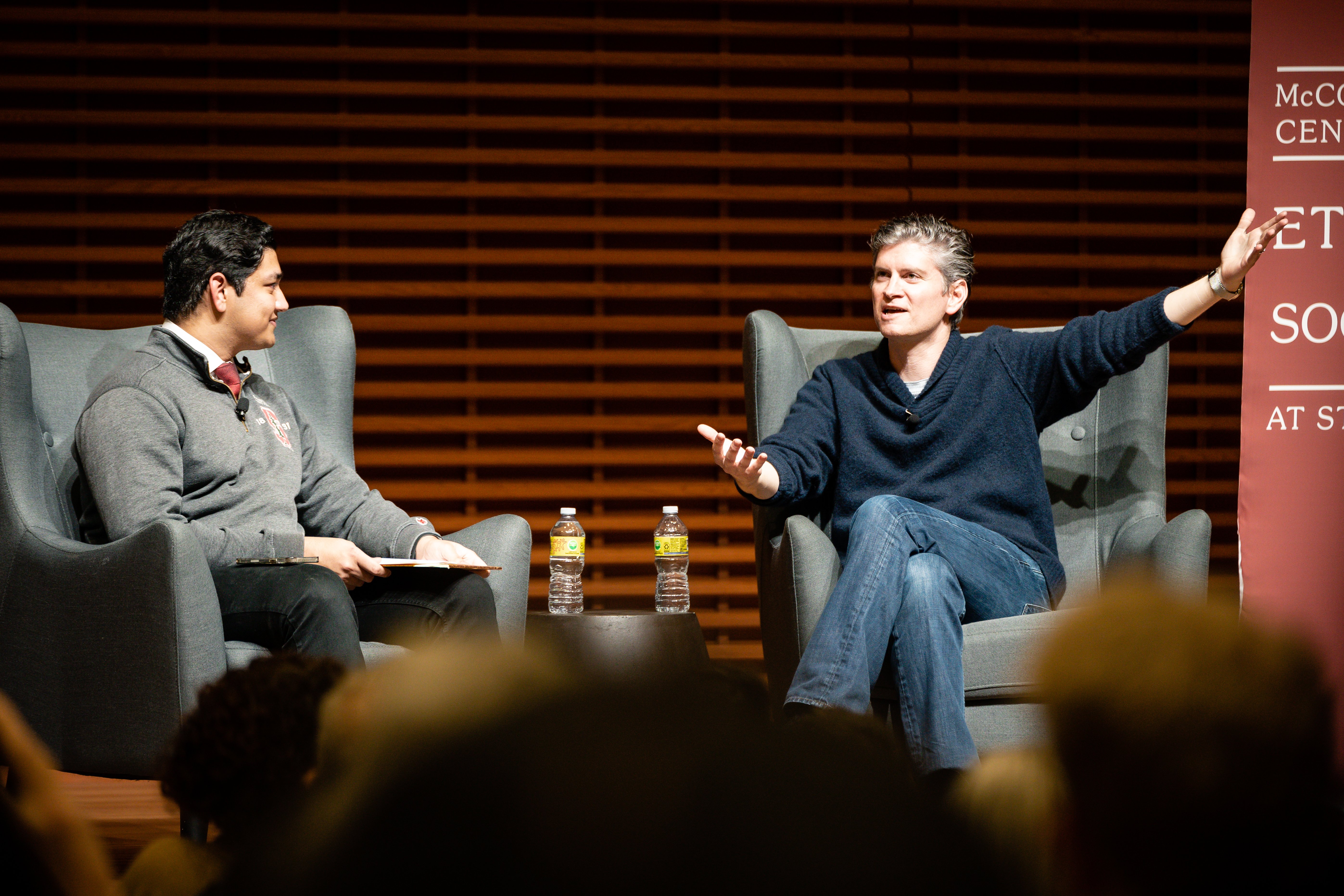“Being good is better than being bad,” Michael Schur said to the audience at CEMEX auditorium on Tuesday.
The creator of NBC’s “The Good Place,” co-creator of “Parks and Recreation” and writer for “The Office” came to Stanford to discuss life, morals and his New York Times-bestselling book titled “How to Be Perfect: The Correct Answer to Every Moral Question.”
The event was hosted by Stanford’s Ethics and Society program, with opening words from Faculty Director Rob Reich and Gwendolyn Spencer ’26. Schur was introduced and later interviewed by Ashwin Pillai ’23, a Philosophy and Political Science major.
In order to succeed in an ethical world, you have to rebel, said Shur. He shared a story about his father’s college roommate, who was a physics major — but only because his father was a physicist, and his father and so on. He got to his final year of school only to realize he hated physics. So he became something revolutionary: a lawyer. His rebellion allowed him to come into his own!
An audience member asked Schur how students could ethically navigate the industries that Stanford prepares its students for. His answer? Rebel! If you want an ethical company, you have to commit to ethics.
“It’s not like you take 3% of an ethical solution and sprinkle it over your breakfast cereal,” Schur said. “It has to be baked in; you can’t just donate 1% of proceeds to charity.” An ethical company owner has to imbue ethics into their employees, their corporate culture, the promotions, all the way down to the way they ship products out, he said.
He continued, explaining that humans have the so-called magical ability of reasoning and thus the ability to determine what is good and what is bad.
“The [reason] I said that,” Schur admitted, “was because it really makes me laugh to think that your parents paid $75,000 so that you could come to this lecture and hear the guy who played Mose on ‘The Office’ tell you that being good is better than being bad.” He added that this has been a glaring conclusion “as long as humans have had the ability to think about themselves.”
Schur then discussed the topic of the importance of storytelling. Entertainment is special in its ability to “fool people into thinking that they’re not being taught anything,” when in fact they are, Schur said. He referenced other great pieces of television, like “Breaking Bad,” “The Sopranos” and “Mad Men,” citing the way their complex characters and philosophical dilemmas are presented to the viewer in a nice, TV-friendly package.
As Stanford students, Schur says, our moral responsibility to commit to ethics is higher. “Moral responsibility scales up to infinity based on how lucky you’ve been in your life,” Schur said. “The further up the [socioeconomic] ladder you are,” the more you have to take care and pay attention to your morals. Stanford students automatically gain privilege as soon as they begin classes here; with that privilege comes the task of creating a greater moral worldview and helping build a better, more ethical society.
He then told a story about the CEO of Wells Fargo, who defrauded his customers in 2016, then promptly retired — but with $130 million in assets and other compensation. “It can seem that if you behave ethically, you’re a sucker,” Schur said. “The bad guys win.”
The question then becomes, “What’s the point of being good?”
“Mel Gibson is still making movies. Donald Trump is the frontrunner for the 2024 Republican nomination,” Schur said. At the end of the day, though, what is success? Does it have to mean becoming the president of the United States or the CEO of a company? Schur brought up a deleted story arc from “The Office,” in which Jim is offered a job in New York City, but Schur kept getting caught up on the question, “Why doesn’t he take the job?” He realized that Jim is successful in Scranton. The character is surrounded by people he loves, and he is happy. So there’s Schur’s answer: happiness equals success.
